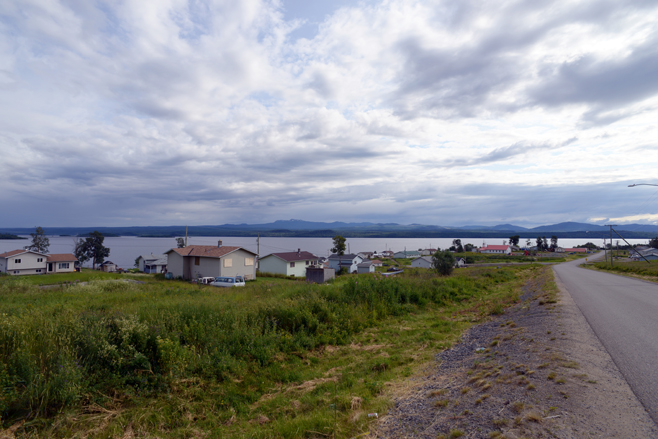Canada: Violence Against Indigenous Women
Set National Inquiry, Investigate Police Misconduct
The Canadian government should set up an independent national inquiry into the violence experienced by indigenous women and girls and create a system for greater accountability for police misconduct, Human Rights Watch said. Representatives from Human Rights Watch testified on January 30, 2014, before the Special Committee on Violence Against Indigenous Women in the Canadian House of Commons. They also urged officials to hold police responsible for misconduct.

The Tachie reserve in northern British Columbia. In Carrier, the indigenous language in Tachie and many indigenous communities in northern BC, the literal translation of the word for police is “those who take us away.” An RCMP report on the historical involvement of the police in Canada’s residential school system found that “The police were not perceived as a source for help but rather as an authority figure who takes members of the community away from the reserve or makes arrests for wrong-doing.
“When police abuse happens or when the police fail to provide adequate protection, women, girls, and their families have limited recourse,” said Liesl Gerntholtz, women’s rights director at Human Rights Watch. “The gravity of the crisis of violence against indigenous women in Canada demands a national inquiry.”
Human Rights Watch research published in February 2013 documented the Royal Canadian Mounted Police failure in northern British Columbia to protect indigenous women and girls from violence. Human Rights Watch also documented abusive police behavior against indigenous women and girls, including excessive use of force, and physical and sexual assault. Canada has inadequate police complaint mechanisms and oversight procedures, and has no requirement for independent civilian investigations into all reported incidents of serious police misconduct.
Parliament established the special all-party committee in February 2013 to hold hearings on the issue of missing and murdered indigenous women and to propose solutions to address root causes of the violence against indigenous women.
Source: Human Rights Watch
- 442 reads
Human Rights
Fostering a More Humane World: The 28th Eurasian Economic Summi

Conscience, Hope, and Action: Keys to Global Peace and Sustainability

Ringing FOWPAL’s Peace Bell for the World:Nobel Peace Prize Laureates’ Visions and Actions

Protecting the World’s Cultural Diversity for a Sustainable Future

Puppet Show I International Friendship Day 2020

